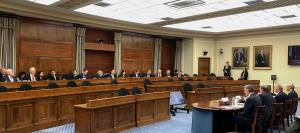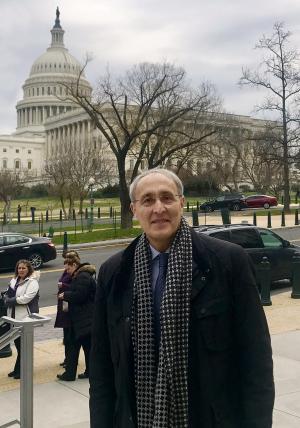Strong bipartisan support expressed
"For I dipped into the future, far as human eye could see,
Saw the Vision of the world and all the wonder that would be."
In the hearing room of the United States House of Representatives Committee on Science, Space and Technology, the wall bears an inscription of the above quote from the English poet Alfred Lord Tennyson. It set a fitting context for much of the discussion as the Subcommittee on Energy met on 6 March to discuss the future of the US fusion research program, including US participation in the ITER Project.
As The Washington Post reported the next day, the hearing was striking for its clear bipartisan support for ITER and the benefits of US participation. One after another, Republicans and Democrats noted the importance of fusion as part of a future global energy supply, and the corresponding importance of ITER as a core element of the US fusion research program (just as ITER is a core element of fusion research for each Member). As stated by the Republican Chairman of the Subcommittee, Representative Randy Weber, "Though located in France, ITER is also a US research project."
Most of the Director-General's message, however, focused on positive signs: the strong pace of progress in construction and manufacturing, the repeated validation through external review and audit that ITER is "well managed to the best industry standards," and the overall Member contributions that have led to ITER recently crossing the 50 percent mark in "total construction work scope through First Plasma."



